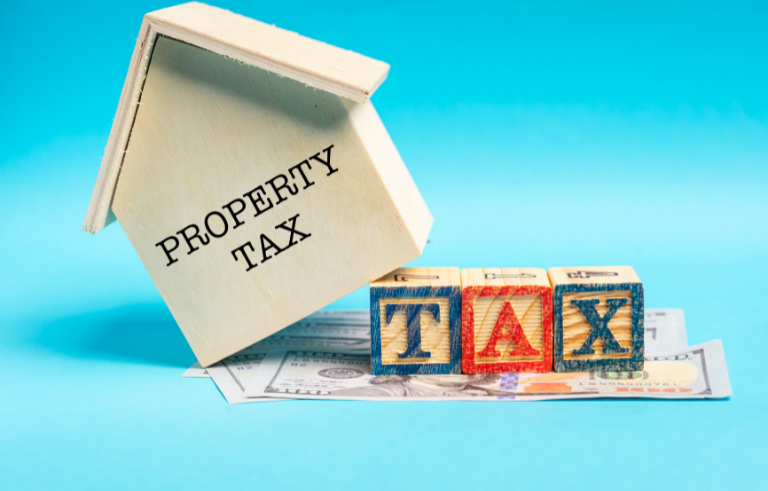Introduction
Property tax is a fee that property owners in India must pay to their local municipal authority. The money collected is used for maintaining roads, sanitation, public health, and other services. Understanding property tax helps homeowners follow the rules and avoid penalties. This guide explains how property tax works in India, including how it is calculated, paid, and possible exemptions.
For more detailed information and assistance on property related matters, visit Sarvome.
What is Property Tax?
Property tax is a yearly charge on property owners. It applies to houses, shops, offices, and even empty land. The amount varies from city to city.

How is Property Tax Calculated?
The tax is based on factors like location, size, type, and age of the property. Cities use different methods to calculate the tax:
- Annual Rental Value System (ARV) – Based on the expected rent from the property.
- Capital Value System (CVS) – Based on the market value of the property.
- Unit Area Value System (UAV) – Based on the area of the property and its use.
Example Calculation:
If a property is valued at ₹50,00,000 and the tax rate is 2%, the tax will be:
₹50,00,000 × 2% = ₹1,00,000
Property Tax Rates in Major Indian Cities
Different cities have different property tax rules:
- Delhi – Uses the Unit Area System; rates vary by area.
- Mumbai – Based on the market value of the property.
- Bengaluru – Different rates for residential and commercial properties.
- Chennai – Based on estimated rental value.
- Faridabad – Rates depend on property size and use.
Check your local municipal corporation’s website for updated tax rates.
Eligibility Criteria for Paying Property Tax
Property tax is applicable to all property owners who meet the following criteria:
- Ownership: Individuals or entities owning residential, commercial, or industrial properties.
- Property Use: Whether the property is used for residential, commercial, or industrial purposes.
- Location: Property owners residing within the jurisdiction of the local municipal corporation.
- Age: Property tax must be paid by all property owners, regardless of age, unless there is an exemption available (e.g., senior citizens or certain other categories). However, in some states, tax benefits or exemptions might be provided based on age, particularly for senior citizens.
Note that owners of vacant land or agricultural land may also be subject to property tax, depending on local laws.
Who Needs to Pay Property Tax?
The tax must be paid by:
- Homeowners
- Shop or office owners
- Industrial property owners
- Owners of empty land (in some cases)

How to Pay Property Tax?
You can pay property tax online or offline:
Online Payment:
- Visit your city’s municipal website.
- Select ‘Property Tax Payment.’
- Enter your property details (Property ID, zone, ward, etc.).
- Pay using net banking, debit/credit card, UPI, etc.
- Save the receipt.
Offline Payment:
- Visit your municipal office or a designated bank.
- Fill out the tax form and submit required documents.
- Pay via cash, cheque, or demand draft.
- Collect your receipt.
Documents Needed for Paying Property Tax
- Property ownership proof (Sale deed, Title deed, etc.)
- Past tax payment receipts (if available)
- Aadhar card, PAN card, or other ID proof
- Property details (Property ID, assessment number, etc.)
Property Tax Exemptions and Discounts
Some property owners get tax reductions:
- Senior citizens
- Women (in some states)
- Disabled persons and ex-servicemen
- Agricultural landowners
- Charitable institutions
Check with your local authority for details on exemptions.
Common Property Tax Issues and Solutions
- Incorrect Tax Assessment: If your tax amount seems wrong, you can file an appeal.
- Late Payment Penalties: Paying late leads to extra charges. Set reminders to pay on time.
- Non-Payment Consequences: If you don’t pay for a long time, your property may be seized.
To get the latest details, visit your local municipal corporation’s website or consult a legal expert.
